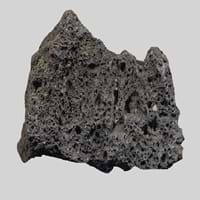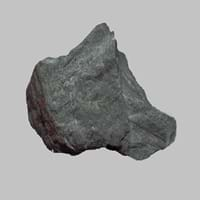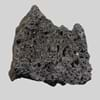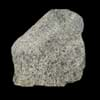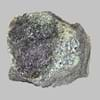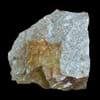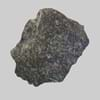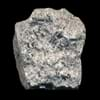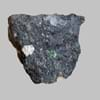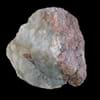Definition
Scoria is a dark-colored extrusive igneous rock with abundant round bubble-like cavities
Taconite is a low-grade iron ore which belongs to sedimentary rock and containing about 27% iron and 51% silica
Origin
Unknown
Western Australia, Minnesota
Discoverer
Unknown
Newton Horace Winchell
Etymology
From late Middle English (denoting slag from molten metal), from Greek skōria refuse, from skōr dung
From the name of Taconic Mountains in New England
Class
Igneous Rocks
Sedimentary Rocks
Sub-Class
Durable Rock, Medium Hardness Rock
Durable Rock, Medium Hardness Rock
Group
Volcanic
Not Applicable
Other Categories
Fine Grained Rock, Opaque Rock
Coarse Grained Rock, Opaque Rock
Texture
Vesicular
Banded, Trellis
Color
Black, Brown, Dark Grey to Black, Red
Red, Reddish Brown
Durability
Durable
Durable
Scratch Resistant
Yes
Yes
Appearance
Glassy and Vesicular
Layered, Banded, Veined and Shiny
Interior Uses
Decorative Aggregates, Interior Decoration
Decorative Aggregates, Entryways, Flooring, Homes, Interior Decoration
Exterior Uses
Garden Decoration, Paving Stone
As Building Stone, Garden Decoration, Paving Stone
Other Architectural Uses
Curbing
Curbing
Construction Industry
Cement Manufacture, Construction Aggregate, for Road Aggregate, In landscaping and drainage works
As Dimension Stone, Used for flooring, stair treads, borders and window sills.
Medical Industry
Not Yet Used
Not Yet Used
Antiquity Uses
Artifacts, Monuments, Sculpture
Artifacts
Commercial Uses
As a traction material on snow-covered roads, Creating Artwork, High-temperature insulation, In gas barbecue grills
As a touchstone, Cemetery Markers, Creating Artwork
Types
Not Available
Not Available
Features
Available in Lots of Colors and Patterns, Generally rough to touch, Surfaces are often shiny
Is one of the oldest rock
Archaeological Significance
Famous Monuments
Data Not Available
Data Not Available
Famous Sculptures
Data Not Available
Data Not Available
Pictographs
Used
Not Used
Petroglyphs
Used
Not Used
Formation
Scoria forms when magma containing huge amount of dissolved gas flows from a volcano during an eruption.
Taconite is a type of sedimentary rock formed when a river carries or transports pieces of broken rock as it flows. When the river reaches a lake or sea, its load of transported rocks settles or deposits at the bottom of sea or lake.
Mineral Content
Apatite, Biotite, Calcite, Feldspar, Hematite, Hornblade, Ilmenite, Magnetite, Olivine, Pyroxene, Quartz, Silica
Hematite, Magnetite, Quartz
Compound Content
Ca, NaCl
Fe, Iron(III) Oxide, Silicon Dioxide
Types of Metamorphism
Burial Metamorphism, Cataclastic Metamorphism, Contact Metamorphism
Not Applicable
Types of Weathering
Biological Weathering, Chemical Weathering, Mechanical Weathering
Biological Weathering, Mechanical Weathering
Types of Erosion
Chemical Erosion, Coastal Erosion, Glacier Erosion
Chemical Erosion, Coastal Erosion, Glacier Erosion, Water Erosion, Wind Erosion
Grain Size
Fine Grained
Large and Coarse Grained
Fracture
Conchoidal
Uneven, Splintery or Conchoidal
Porosity
Highly Porous
Highly Porous
Luster
Subvitreous to Dull
Earthy
Cleavage
Perfect
Imperfect
Specific Gravity
Not Available
5-5.3
Transparency
Opaque
Translucent to Opaque
Density
Not Available
Not Available
Specific Heat Capacity
Not Available
Resistance
Heat Resistant, Impact Resistant, Pressure Resistant, Wear Resistant
Heat Resistant, Impact Resistant, Pressure Resistant, Wear Resistant
Deposits in Eastern Continents
Asia
Afghanistan, Indonesia, Japan, Russia
China, India, Iran, Iraq, Oman, Russia, Saudi Arabia, Taiwan, Thailand, Vietnam
Africa
Ethiopia, Kenya, Tanzania
Kenya, Morocco, South Africa, Tanzania
Europe
Greece, Hungary, Iceland, Italy, Turkey
Austria, France, Greece, Italy, Malta, Poland, Portugal, Serbia, Spain, Sweden, United Kingdom
Others
Not Yet Found
Greenland, Mid-Atlantic Ridge
Deposits in Western Continents
North America
Bahamas, Barbados, Canada, Costa Rica, Cuba, Jamaica, Mexico, USA
Canada, Mexico, USA
South America
Argentina, Chile, Ecuador, Peru
Bolivia, Brazil
Deposits in Oceania Continent
Australia
New Zealand, Western Australia
New South Wales, Queensland, South Australia, Western Australia
